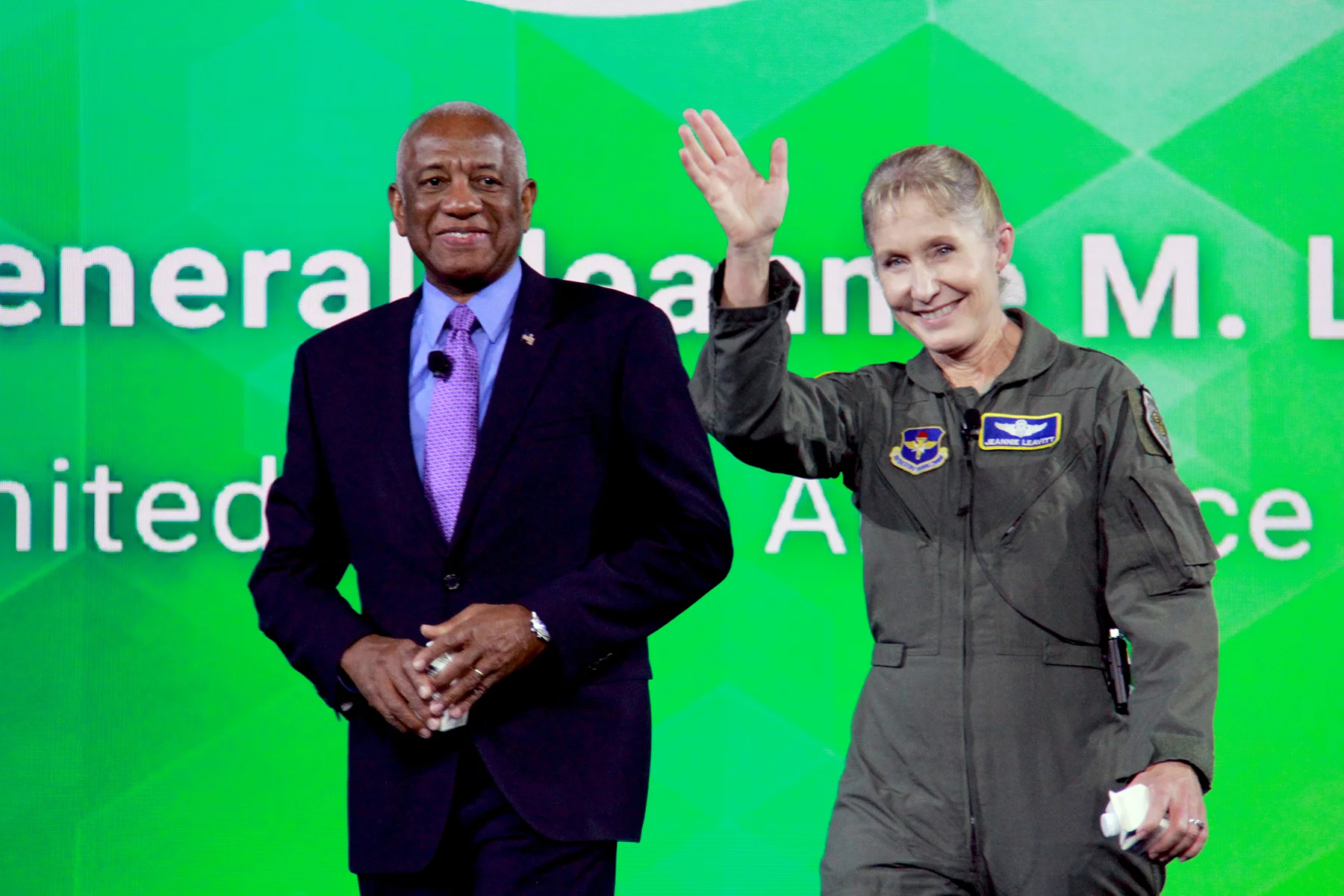Humans to Mars Summit 2020 Builds Worldwide Mission: Who’s Next and Ready to Challenge the Space?
Elon Musk imagines news headline of the century: “Humanity’s on Mars.”
After host Ron Sparkman asked Elon Musk during the Humans to Mars 2020 Summit what the first news headline will be when we finally reach Mars, Musk stopped and pondered on what has become for him a lifetime investment. His long pauses during interviews are like holding your breath before a rocket launch. Then he answered with the confidence of a Martian DNA: “Humanity’s on Mars.” Sparkman laughed nervously and added, “We finally made it!” The rest is history; only that we are still in the first stage of this bold mission, at least until the first human will set footprint as planned in 2033.
The three-day virtual H2M Summit kicked off as a challenge to the brightest minds in science, architecture, education, communication, ethics, fashion and more. Every single aspect of humans reaching and sustaining life on Mars a decade from now was debated, challenged and planned. Among them was Musk, who had just successfully launched a test rocket a day before, the Falcon 9 rocket that placed an Argentine radar observation satellite into orbit and also was SpaceX’s 100th launch. With that the millions of miles away goal came one step closer to reality, one that is not always made of space exploration fairytales. “I want to emphasize this is very hard and dangerous. Not for the faint of heart. Good chance you will die. It’s going to be tough going but glorious if it works out,” said Musk.
In the control room and at the helm of this dream summit spaceship was Explore Mars President Janet Ivey, who is leading space education in the country and internationally. Moving at the speed of thought as she says, is the mission of the Janet’s Planet. Boarding on this academic journey toward a newly found 2020 reality is the lucky generation. Dressed in space and presidential suits the children of Janet’s Planet Steam Astronaut Academy read their essay speech about this year’s Perseverance theme, inspired by the rover mission on its way to Mars today. It is set to successfully touch down February 18, 2021 on the Jazero Crater. To write his essay an impressive grade school student that goes by the name of Jesse B. and also a recent graduate of the Janet’s Planet Astronaut Academy only needed the camera to look in the eyes of the Summit, watching live from their digital screens. The delivery of his free speech poured purely from his heart. And the message of his generation took shape through his words in unprecedented code. “Almost half of the kids in school don’t know about space. I think it’s super sad. I think it’s the fact that they don’t want us to know what is out there. Because what is out there might scare us. [Or] there might be other things that we don’t know about,” he said.
The diversity theme continued to lead throughout the Summit in preparation for what will become a worldwide mission to Mars. From the National Aeronautics and Space Administration, UAE Mohammed Bin Rashid Space Center, Japan Aerospace Exploration Agency and European Space Agency, for three days the world came together to find life sustaining solutions on Mars. The tears in Ivey’s eyes by the end of the Summit as the Explore Mars team bid farewell until next year, when everyone will hopefully meet in person again, emphasized the human leadership we will need on the path from Earth to the Moon, Mars and beyond.
Notable comments posted throughout the discussions as panels of scientists and astronauts formed. The busy chatroom full of enthusiastic attendees, noted their thoughts, as each took turn to look through a new and exciting universal lens.
Michael Ward said: “Perseverance is the story of humanity.”
Lori Glaze, NASA Director Planetary Science Division: “I am incredibly excited about the amount of nations that are engaged.”
Dr. Kavya Manyapu, Boeing Flight Crew Operations and Test Engineer: “All of us are ambassadors of this planet!”
Vera Mulyani, Founder of Mars City Design: "We have to overcome little mindsets. It's like a pollution in our minds that stops us from advancing."
Heidi Hecht, attendee wrote: “Mars is currently the only known world inhabited entirely by robots (that we know of).”
Diana Alsindy, Founder of The Arabian Stargazer: “You can pursue space from anywhere in the world. You don’t have to be good at math, speak English or work at NASA to be an astronaut. There are so many different avenues. Most importantly you don’t have to be a scientist. You can work as an artist, photographer, accountant, whatever major you are interested in.”
Cam Abbott: “#WhyPersevere We are children of stardust and we want to explore and play in our intergalactic garden.”
Paula Korn, Space Explorer and former NASA Consultant: “Let’s speak about space as a vehicle for the growth of future populations...”
The vehicle of growth that travels beyond Earth’s GPS is indeed our most precious resource. Elon Musk, the man that looks past the Moon, stars and meteorites, added: “Getting to Mars is not the fundamental issue. Building a base, a city on Mars that is self-sustaining such that if the ships ever stop coming, the Mars city doesn’t die out.”
When four-year-old Esther asked Elon at the beginning of the Summit, “why is it so important to settle Mars?” He replied, “We want to make sure that civilization continues even if something terrible happens on Earth, either made by humans or natural. We want to have insurance for life as a whole. We are life agents…It’s important for the preservation of life as we know it to be a multi-planet and ultimately an-inter stellar species.”
All content is copyright of Worldwide Mirror Media Outlet © 2020.







